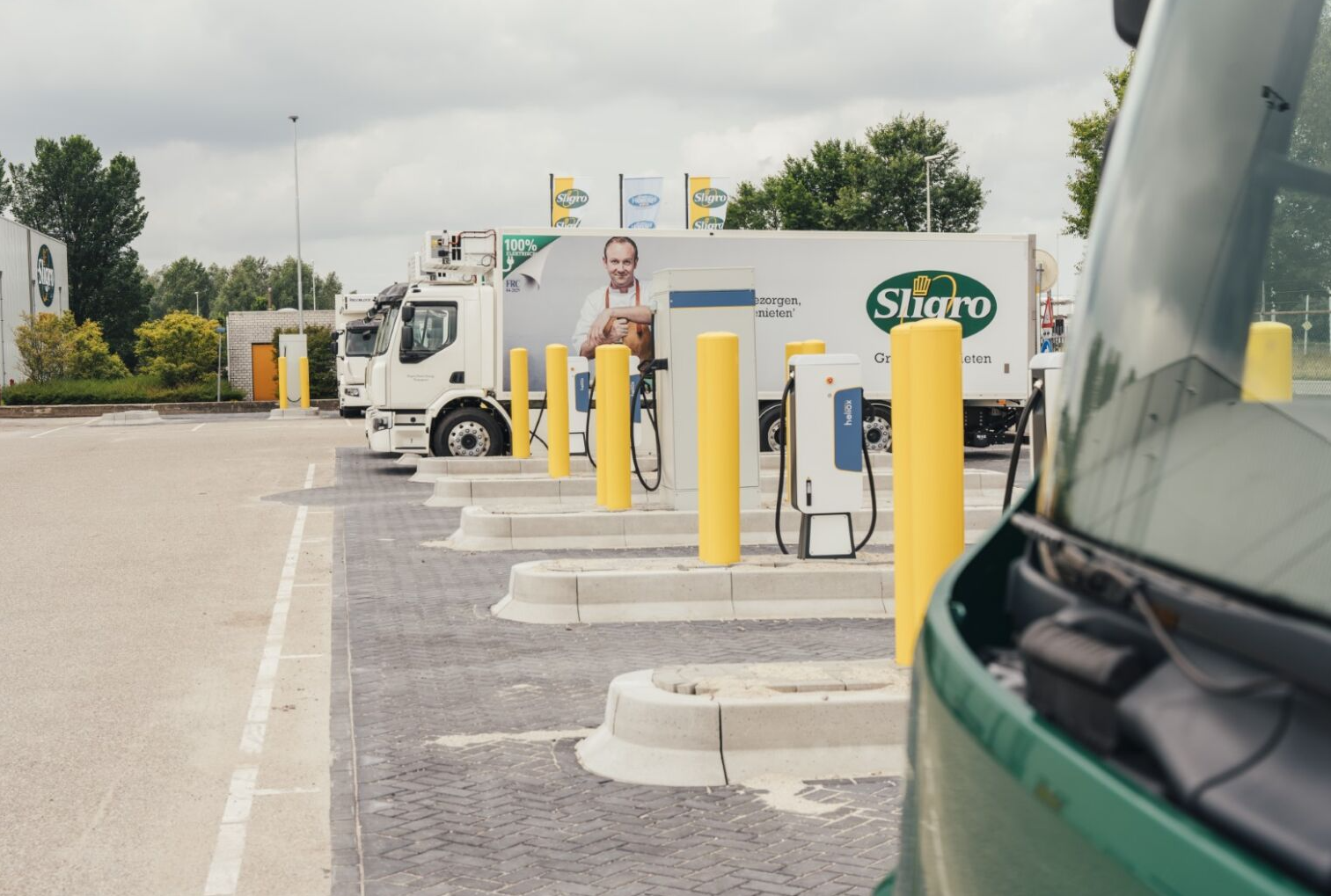Verkehrsbetriebe Hamburg-Holstein GmbH (VHH) has completely modernized its largest bus depot in Schenefeld. Now, up to 64 zero-emission buses can be charged with renewable energy at this facility. A modern charging hub for eBuses in the federal state of Schleswig-Holstein has been installed on 7,640m² of real estate.
At the Schenefeld site, the space for setting up the charging infrastructure is limited; VHH charges its fleet only at the depot. Electric buses from four different OEMs are in use. In addition, the efficiency of the charging infrastructure, sustainability, and safety are crucial to this project.
To enable space-saving fast charging for up to 64 electric buses, Flex chargers with an output of 150 kW a piece were installed. Suspended charging cables lower from the steel gantry via an automatic unwinding system so that both solo and articulated buses can charge without any problems. The power units are in a separate technical building; a smoke detection system reports potential smoke generation to the central fire alarm system. The interaction of the buses with the charging infrastructure and backend was intensively tested before commissioning.
The space-saving and flexible design of their EV charging setup enables up to 64 electric buses to be charged at the same time. Through integration into the existing backend, the charging infrastructure can be easily monitored. The order also includes a long-term service contract.
Heliox and TU/e aim to develop an integrated solution that makes charging heavy electric vehicles accessible without negative consequences for local electricity networks. Together, we want to achieve this by developing and demonstrating a new, multiple and dynamic charging system for heavy electric vehicles that is equipped with software-controlled stabilization to absorb disturbances on the local energy grid.
The intended system will consist of a dynamically configurable charging system based on modules that can be connected in parallel, each with three 60 kW outputs. With this they want to be able to distribute the loading capacity dynamically over several vehicles. The charging system can therefore be used for opportunity charging up to 360 kW for a single vehicle as well as for regular charging of several vehicles.
In addition, smart software and a microcontroller board are being developed. The converter of the charging system can be used via this software to compensate for grid disturbances. The disturbances are neutralized via a low impedance path. This allows losses on the grid to be converted into usable energy, while improving the voltage quality of the grid. In fact, the system completely takes over the function of current power filters on the basis of smart control.
Verkehrsbetriebe Hamburg-Holstein GmbH (VHH) has completely modernized its largest bus depot in Schenefeld. Now, up to 64 zero-emission buses can be charged with renewable energy at this facility. A modern charging hub for eBuses in the federal state of Schleswig-Holstein has been installed on 7,640m² of real estate.
At the Schenefeld site, the space for setting up the charging infrastructure is limited; VHH charges its fleet only at the depot. Electric buses from four different OEMs are in use. In addition, the efficiency of the charging infrastructure, sustainability, and safety are crucial to this project.
To enable space-saving fast charging for up to 64 electric buses, Flex chargers with an output of 150 kW a piece were installed. Suspended charging cables lower from the steel gantry via an automatic unwinding system so that both solo and articulated buses can charge without any problems. The power units are in a separate technical building; a smoke detection system reports potential smoke generation to the central fire alarm system. The interaction of the buses with the charging infrastructure and backend was intensively tested before commissioning.
The space-saving and flexible design of their EV charging setup enables up to 64 electric buses to be charged at the same time. Through integration into the existing backend, the charging infrastructure can be easily monitored. The order also includes a long-term service contract.




.png)

















